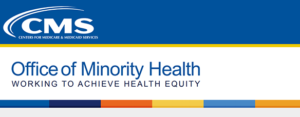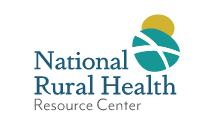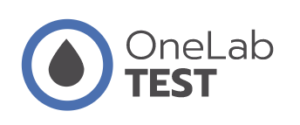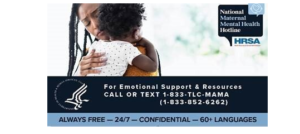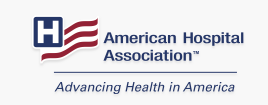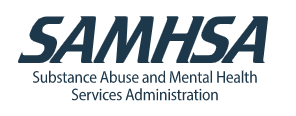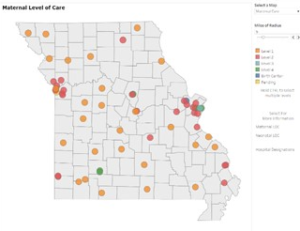May 17, 2023

Xylazine-Involved Fatal Drug Overdoses in Missouri, 2019-2022
Xylazine is used in veterinary medicine as a sedative and muscle relaxant, but it is not approved by the Food and Drug Administration (FDA) for use in humans. Persons who use xylazine-adulterated opioids are at high-risk for fatal overdose. The White House Office of National Drug Control Policy declared xylazine and the use of fentanyl adulterated or associated with xylazine (FAAX) an emerging threat on April 12, 2023. Missouri DHSS detected a sharp increase in xylazine involved deaths in Missouri from 39 deaths in 2021 to 109 deaths in 2022, a 180% increase. Nearly two thirds (65%) of those deaths occurred in adults between 25 and 44 years of age. For all xylazine-involved deaths in 2019-2022, synthetic opioids were also found in 99.4% of these deaths. Increased surveillance and public education, as well as expanded postmortem testing for xylazine is needed, especially in Missouri jurisdictions with a high prevalence of fentanyl use.
Xylazine is an α-2 agonist similar to clonidine, lofexidine, and dexmedetomidine. It is used in veterinary practice as a sedative and analgesic. Xylazine is not FDA approved for human use and is not controlled under the federal Controlled Substances Act (CSA). This non-opioid agent is increasingly being found in combination with opioids such as fentanyl. Xylazine is known as “tranq” or “tranq dope” in the illicit drug market. The drug’s reported duration of effect is longer than that of fentanyl; therefore, it may enhance the euphoria and analgesia induced by fentanyl and reduces the frequency of injections. Recreational use of xylazine can occur via oral ingestion, smoking, snorting, or intramuscular, subcutaneous, or intravenous injection (most common). When used in combination with an opioid, such as heroin or fentanyl, xylazine may worsen respiratory depression during the drug overdose.
Xylazine was found in over 90% of illicit drug samples tested in Philadelphia in 2021 (1). As of March 2023, fentanyl mixed with xylazine had been found in drug seizures in 48 states (2). According to the CDC, the estimated number of drug-poisoning deaths in the
United States involving xylazine went from 260 in 2018 to 3480 in 2021, a 1238% increase (2). The analysis published in MMWR found that among 45,676 overdose deaths reported from 38 states and the District of Columbia in 2019, xylazine was detected in 1.8% of the deaths, and xylazine was listed as a cause of death in 64.3% of deaths in which it was detected (3). In a Cook County, IL study, fentanyl or fentanyl analogs were detected on forensic testing in most xylazine-involved deaths (99.2%). Other common co-occurring substances included diphenhydramine (79.7%), cocaine (41.1%), and quinine (37.3%) (4). Many coroners and medical examiners may not include xylazine in their routine toxicology testing which would leave it largely undetected when investigating cause of death.
Xylazine Involved Deaths in Missouri
A sharp increases in xylazine-associated deaths were observed in Missouri in 2021 and 2022 (Figure 1.). Among death cases, 73% were males. Nearly two third (65%) of xylazine involved deaths occurred in adults between 25 and 44 years of age (Figure 2.). Four adjacent Missouri jurisdictions (St Louis City, St Louis, St Charles, and Jefferson counties) comprise 86% of death cases during the 2019-2022 time period. It is likely that better availability of xylazine testing in the St Louis metropolitan area is contributing to those jurisdictions being overrepresented. For all xylazine-involved deaths in 2019-2022, synthetic opioids were also found in 99.4% of these deaths. Improved availability of xylazine testing in the recent years could be contributing to the sharp increase of xylazine associated death reports in 2021 and 2022.
Clinical Information
As a centrally acting α2 -agonist medication, xylazine inhibits the release of norepinephrine and epinephrine. The effects on the central nervous system include sedation, analgesia, and euphoria. Reduced sympathetic outflow from the central nervous system causes decreased peripheral vascular resistance, heart rate, and blood pressure. All routes of exposure to xylazine have been associated with drowsiness or coma, and in rare instances, apnea and death. Xylazine also causes decreased sensitivity to pain, respiratory depression, bradycardia (low heart rate), hypotension (low blood pressure), and potentially hypothermia. After taking xylazine with an opioid, a person may experience bradycardia and hypotension not explained by heroin or fentanyl alone. Respiratory depression reported in people using xylazine is likely due to the drug increasing the risk of opioid-induced respiratory depression. Xylazine can cause severe circulatory changes with peripheral vasoconstriction leading to poor tissue perfusion, skin ulceration, and necrosis. People who inject drugs containing xylazine can develop severe skin wounds and patches of dead and rotting tissue that easily become infected and, if left untreated, may lead to amputation (Picture 1.). These wounds can develop in areas of the body away from the injection site and may become life-threatening. Soft tissue infections at injection sites and loss of digits have been reported as well. Because xylazine’s duration of effect is longer than that of fentanyl or heroin, repeated intake may allow xylazine levels to accumulate.
People who use xylazine may develop dependence, and have severe withdrawal symptoms, such as irritability, anxiety, and dysphoria when the drug is stopped abruptly. Severe xylazine withdrawal symptoms are unlikely to be managed by medications for opioid use disorder (MOUD) (i.e., methadone, buprenorphine, or naltrexone). Limited data are available for clinical management of the xylazine withdrawal in inpatient settings. Therefore, xylazine presents new potential public health challenges associated with possible withdrawal signs and symptoms in those with xylazine-related substance use disorder.
Routine toxicology tests do not test for xylazine. It may therefore be under-detected and under-accounted for in overdose cases and other life-threatening events. Since xylazine is not an opioid, it does not respond to naloxone, and there is no antidote or reversal agent for xylazine. Even though naloxone is not effective in treating drug overdoses caused solely by non-opioids, such as xylazine, the administration of naloxone may be helpful in drug overdoses caused by a combination of xylazine and opioids like fentanyl and its analogues. Therefore, when a patient presents with a possible exposure to xylazine, practitioners should provide routine care for opioid intoxication, particularly the administration of naloxone, as indicated. The treatment for overdoses involving xylazine is supportive: airway maintenance, breathing and circulation support, and infusion of IV fluids. If indicated, early administration of atropine may mitigate the onset or severity of bradycardia.
Recommendations
- Public education, especially among people who use illicit drugs, regarding the possible presence of xylazine in illicit drugs and the need for emergency medical care even when naloxone is administered.
- Any individual suspected of consuming substances containing xylazine should receive counseling about the dangers of this substance and extensive advice on harm reduction.
- Because xylazine is most often mixed with opioids, the individual exposed to xylazine should also be offered access to medications for opioid use disorder (MOUD) (i.e., methadone, buprenorphine, or naltrexone) and referral to treatment to reduce opioid overdose risk.
- Health care providers should consider the presence of xylazine when managing drug overdose, especially when naloxone administration is ineffective.
- Expand postmortem testing for xylazine and co-occurring substances in opioid-related deaths.
- While routine toxicology tests do not test for xylazine, local jurisdictions may establish partnerships with toxicology laboratories that can identify xylazine in drug or biologic samples.
For questions on management of these patients, contact the Missouri Poison Center (1-800-222-1222)
Read More
